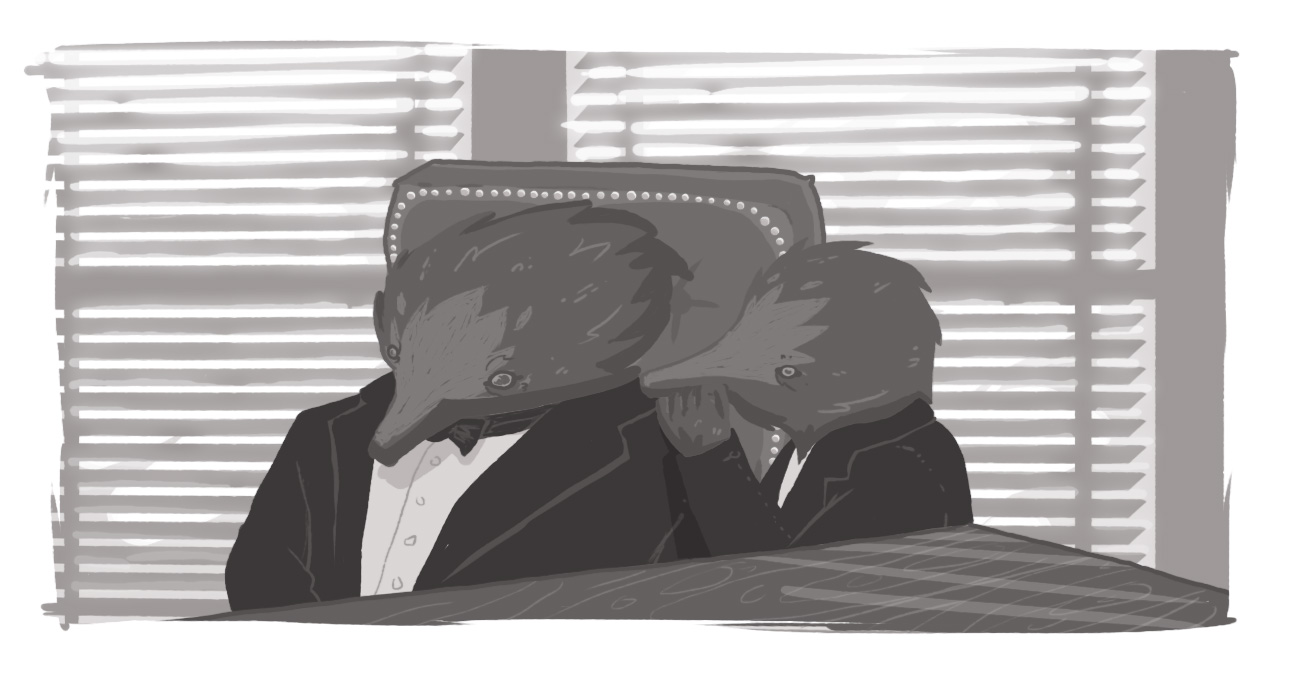Some "Friendly" Advice About Accessibility and Inclusion

Just over a year ago, I wrote about the importance of having accessible options for service providers when persons with disabilities aren’t able to receive assistance from a support person, either in the form of a friend or family member. But even if this support is available, some recent events in my own life have highlighted to me how critical friendship can be to creating inclusive spaces.
Accessibility is more fun with friends!
That's a statement that can mean a couple of things, so please bear with me as I hearken back to my high school English classes to discuss semantics.
"Accessibility is more fun with friends" could mean that accessibility is better done together. That accessibility is more effective as a community effort when more people participate in its implementation.
This is undoubtedly a good thing.
However, there's also a negative way to interpret this phrase though. That the presence (or lack thereof) of a social group can dramatically impact how successful accessibility efforts can be.
There’s a lot to unpack here and it will take me to some pretty personal places -- I hope you’ll indulge me in reading and reflecting. To be clear, everyone faces exclusion of some kind, but when that exclusion means that one’s participation in society is diminished involuntarily, it becomes a bigger problem.
Simply put, it's easier to include someone whom one knows personally. It's not that people intend to be exclusive, but if a person has spent enough time with someone with a disability in an informal sense, they’re less likely to find embracing accessibility unusual -- and more aware of its importance. After all, if you are accustomed to using descriptive language for someone who can’t see well or a clearer tone for someone who is hard of hearing for a friend, why should it change for someone one doesn’t know?
This is great, but can lead to challenges. There's a risk of thinking all people with disabilities have the same needs. I have several blind friends and acquaintances and we are all very different with different accessibility preferences. We need different things despite our similar “conditions,” for lack of a better word.
There's a more troubling accessibility issue that's compounded by a lack of a social group -- loneliness. We know how dangerous that is to overall health and people with disabilities run the risk of being isolated.
Everyone with a disability has a story: the awkwardness felt when asking to join a social group because a guide is required; the tough decision to participate (or not) in activities because it’s unclear whether one’s friends (or at least those willing to assist) will also be participating.
That's where the "friendship" aspect of accessibility comes into play. In particular groups where there are few social opportunities, it's harder to make bonds -- and that means a lower emotional investment in inclusion. This is a particular problem for participants with disabilities, who risk being left out. They’re just not well known enough socially to be top of mind.
That emotional attachment is important because being a sighted guide isn't easy. It's a rather captive activity -- both the guide and the guided are stuck with each other until they arrive at their destination. And while this is a great opportunity to form a positive friendship, that sense of "captivity" can be a barrier, which precludes people from volunteering. It's a vicious cycle of exclusion.
So what can you do?
- Continue to ask what a person with disability needs -- don't just assume you know what those needs are;
- Not everyone is the same, so don't assume everyone has the same needs
- Make sure to be aware of potentially exclusive activities
- If you're a person with a disability, speak up! There's nothing wrong with saying, "Hey, don't leave me here!"
- Offer to be a sighted guide -- it's a great opportunity to get to know someone
- It's a two-way relationship. Don't develop friendships because you "need" something. Find a way to make it a healthy, symbiotic relationship -- give gas money or take a friend who drives you around to dinner once in a while. Or just say thanks.
- Try to keep conversations light, at first -- I've had more than my share of attempted conversions by those kind enough to offer assistance
For myself, I have never feigned friendship or tried to take too much from those around me, but I also know that I have had to be more outgoing than others, and that I fail at this routinely. When I arrived at a book club solo when I would normally come with a family member, I should have said “Hi! Is this the book club?” as no one greeted me when I arrived. Instead, I sat awkwardly, not sure if I was with anyone at all (silent people are invisible to those who can’t see), and hope someone would shift or speak or something to indicate that they were there and that I was with the right crowd. Much of my involvement in my university residence came about as a result of my being tired of being left out. If I wasn’t invited to events, or couldn’t attend the inaccessible events that were scheduled, I would just have to create my own and invite my floor in the hopes someone would hang out with me more often.
There’s also the issue of choice. I can’t select someone I think looks kind or interesting; I have to hope that the person who volunteers assistance or the person I find myself are the type of people I enjoy.
As with everything, it’s a give and take. People with disabilities should learn and practice the basic rules of etiquette and social decency, but shouldn’t have to adopt airs of congeniality they don’t necessarily feel in order to get a guide or some other form of assistance. They should never feel, or be made to feel, that their friendship with someone is “payback” for assistance.
People with disabilities are not a burden to anyone and any friend worth having should never make them feel like one. Those who could offer help should be willing to make a new friend in the process and not view the experience as their daily goodness quota, but also should never tolerate behaviour from someone they’re assisting that makes them uncomfortable. Of course, I am not suggesting that strangers giving or receiving help on a street corner should be best buds in the few minutes of life they spend together; I’m thinking more in the context of school, work, or community activities that would bring the same people together on a regular basis.
In the end, accessibility support is about awareness and ensuring we look out for each other. It's a give-and-take relationship that's predicated on understanding. We all have our roles to play -- and, who knows? You may make a life-long friend out of the experience.
How can I support colleagues with disabilities?
What can we do to make our workplace more inclusive and functional for people with disabilities?
SUBSCRIBE TO OUR E-NEWSLETTER
 Subscribe
Subscribe


